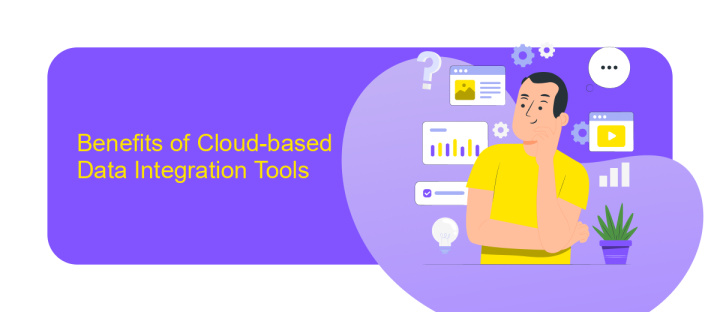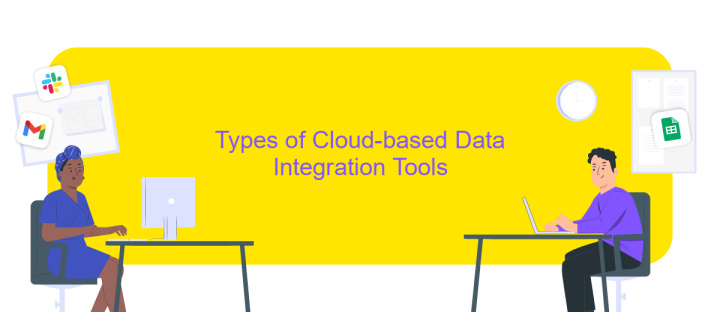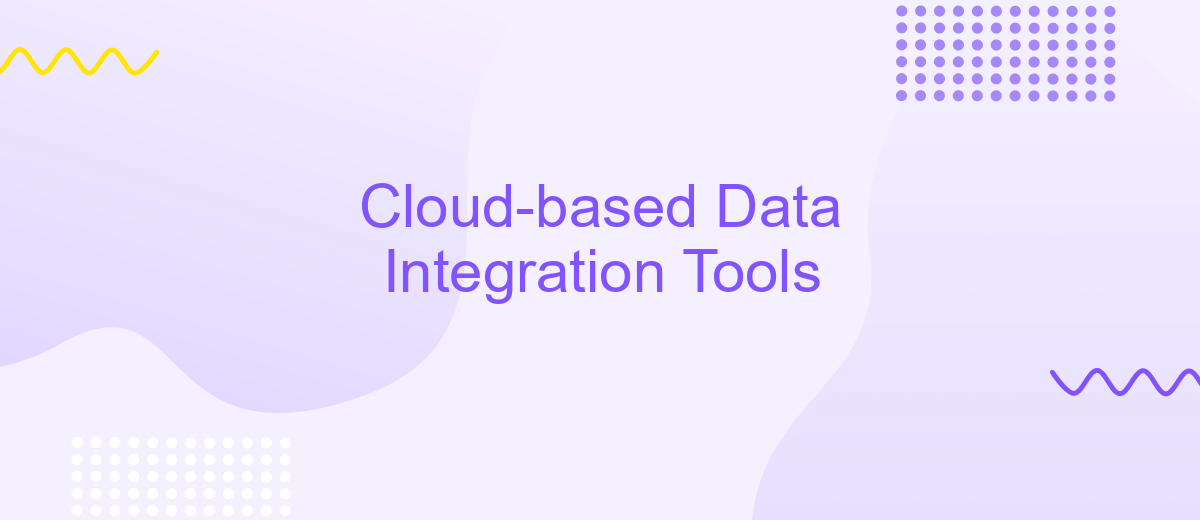Cloud-based Data Integration Tools
In today's digital age, businesses are increasingly turning to cloud-based data integration tools to streamline their operations and enhance data accessibility. These tools facilitate seamless data exchange between disparate systems, enabling real-time analytics and informed decision-making. By leveraging cloud technology, organizations can achieve greater scalability, flexibility, and cost-efficiency, ultimately driving innovation and competitive advantage in a rapidly evolving marketplace.
Introduction
In today's rapidly evolving digital landscape, the ability to seamlessly integrate data from various sources is crucial for businesses to maintain a competitive edge. Cloud-based data integration tools have emerged as a powerful solution, enabling organizations to efficiently manage, process, and analyze vast amounts of data in real-time. These tools offer a range of features that simplify the complexities associated with traditional data integration methods.
- Scalability to handle large volumes of data
- Real-time data processing and analytics
- Cost-efficiency by reducing infrastructure expenses
- Enhanced data security and compliance
- Ease of use with user-friendly interfaces
By leveraging cloud-based data integration tools, businesses can unlock valuable insights, drive informed decision-making, and foster innovation. These tools not only streamline data workflows but also provide the flexibility to adapt to changing business needs. As a result, organizations can improve operational efficiency, enhance customer experiences, and ultimately achieve their strategic objectives.
Benefits of Cloud-based Data Integration Tools

Cloud-based data integration tools offer numerous benefits that enhance the efficiency and effectiveness of data management processes. One of the key advantages is scalability; these tools can easily handle increasing data volumes without requiring significant infrastructure changes. This flexibility is crucial for businesses experiencing rapid growth or fluctuating data needs. Additionally, cloud-based solutions typically offer robust security features, ensuring that sensitive data is protected against breaches and unauthorized access.
Another significant benefit is the ease of integration and automation provided by these tools. Services like ApiX-Drive simplify the process of connecting various applications and data sources, allowing businesses to automate workflows and reduce manual intervention. This not only saves time but also minimizes the risk of human error. Furthermore, cloud-based tools often come with user-friendly interfaces and comprehensive support, making it easier for organizations to implement and manage their data integration strategies effectively.
Types of Cloud-based Data Integration Tools

Cloud-based data integration tools are essential for businesses to seamlessly connect, manage, and analyze data from various sources. These tools offer flexibility, scalability, and efficiency, making them a preferred choice for modern enterprises. There are several types of cloud-based data integration tools, each designed to cater to specific needs and use cases.
- ETL (Extract, Transform, Load) Tools: These tools extract data from different sources, transform it into a suitable format, and load it into a target system. Examples include Talend and Informatica.
- Data Replication Tools: These tools replicate data between databases in real-time or near real-time, ensuring data consistency and availability. Examples include Fivetran and Stitch.
- iPaaS (Integration Platform as a Service): These platforms provide comprehensive solutions for integrating applications and data across cloud and on-premises environments. Examples include MuleSoft and Dell Boomi.
Choosing the right cloud-based data integration tool depends on various factors such as the complexity of data sources, integration requirements, and budget. By understanding the different types available, businesses can make informed decisions to optimize their data integration processes.
Factors to Consider When Choosing a Cloud-based Data Integration Tool

When selecting a cloud-based data integration tool, it's essential to evaluate several critical factors to ensure it meets your organization's needs. The right tool can streamline operations, enhance data accuracy, and improve overall efficiency.
First, consider the tool's compatibility with your existing systems and data sources. Seamless integration is crucial for minimizing disruption and maximizing productivity. Additionally, assess the tool's scalability to accommodate future growth and increased data volumes.
- Ease of use and user interface
- Security features and compliance with regulations
- Cost and pricing model
- Support and customer service
- Performance and reliability
Finally, it's important to review user feedback and case studies to gauge real-world performance and reliability. By carefully considering these factors, you can choose a cloud-based data integration tool that aligns with your strategic objectives and delivers long-term value.
- Automate the work of an online store or landing
- Empower through integration
- Don't spend money on programmers and integrators
- Save time by automating routine tasks
Case Studies of Cloud-based Data Integration Tools
One notable case study in the realm of cloud-based data integration tools involves a leading e-commerce company that leveraged ApiX-Drive to streamline its operations. The company faced challenges in synchronizing data between its online store, CRM system, and email marketing platform. By integrating ApiX-Drive, they were able to automate data transfers, ensuring real-time updates across all systems. This not only improved data accuracy but also significantly reduced manual labor, allowing the team to focus on strategic initiatives rather than routine data management tasks.
Another compelling example is a healthcare provider that used ApiX-Drive to integrate patient management systems with their billing and appointment scheduling software. Prior to this integration, the provider struggled with data discrepancies and time-consuming manual entries. Implementing ApiX-Drive allowed for seamless data flow, minimizing errors and enhancing patient care through more accurate and timely information. As a result, the healthcare provider experienced increased operational efficiency and improved patient satisfaction, demonstrating the powerful impact of cloud-based data integration tools.
FAQ
What are cloud-based data integration tools?
How do cloud-based data integration tools enhance business efficiency?
What are the key features to look for in a cloud-based data integration tool?
How can cloud-based data integration tools simplify the integration process for non-technical users?
What are the benefits of using a service like ApiX-Drive for data integration?
Apix-Drive is a universal tool that will quickly streamline any workflow, freeing you from routine and possible financial losses. Try ApiX-Drive in action and see how useful it is for you personally. In the meantime, when you are setting up connections between systems, think about where you are investing your free time, because now you will have much more of it.


